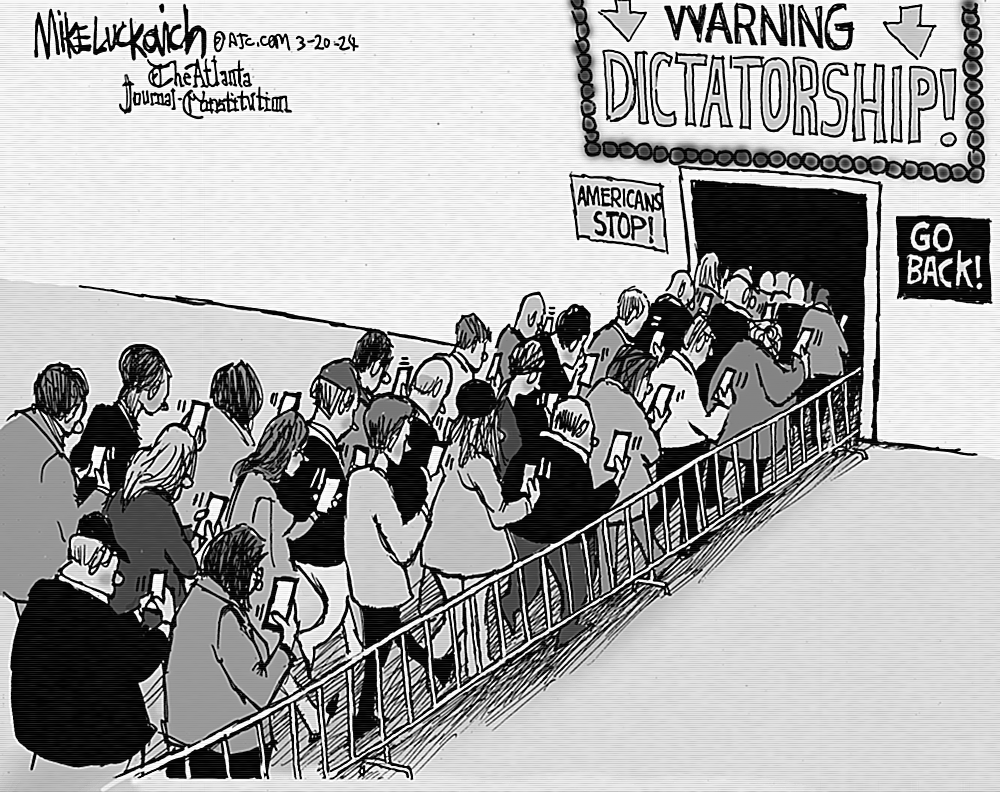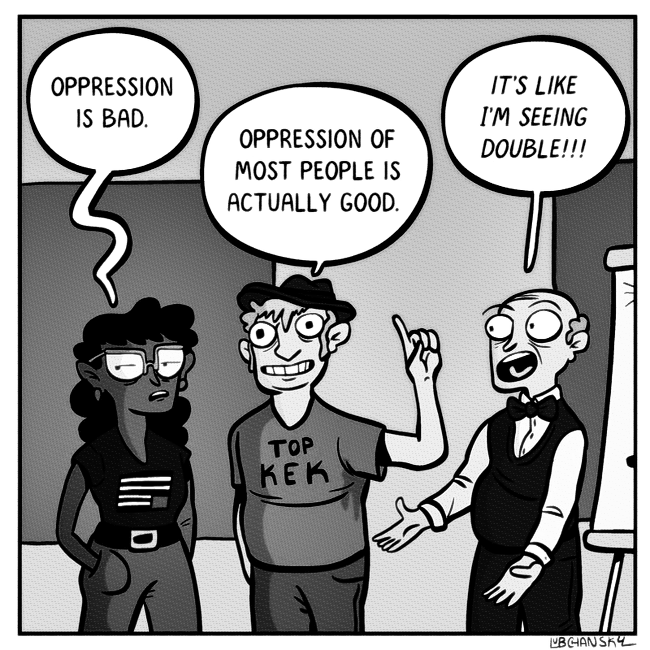#trumpswindle | #WhatTheyVotedFor

Annieli, at Daily Kos, writes:
Those who wonder why we should care about Khashoggi’s death should ask whether we want an autocratic thug to be directing US foreign policy? Why is America’s president covering up a brutal extra-territorial murder? All this whabboutery serves MBS. Is that what we want?
And this is an important question: All of President Trump’s equivocation and excuses serve foreign interests.Remember that Donald Trump still thinks he is doing business, and this is reflected in conservative language; among Republican excuses for the President’s behavior, Sen. Bob Corker (R-TN), often seen as a critic of the administration, mewled and rolled over:
A key consideration in the administration’s mind, according to Republican Sen. Bob Corker (Tenn.), is the belief that the crown prince can salvage Kushner’s stalled peace plan between Israelis and Palestinians. “A lot of the Middle East peace plan is based upon their support. They feel like they have a lot of equity there,” Corker said.
(Dawsey, Hudson, and Gearan)
“Equity” is a curious word. Certes, the Trump family has invested tremendous “political capital”. There are a handful of Congressional Republicans willing to speak against President Trump, and the general criticism runs that tweeting disapproval is pretty much all they do compared to their voting records. And in this moment, Mr. Corker, the retiring U.S. Senator, is lending his voice in aid and comfort to presidential pandering on behalf of foreign interests. The Washington Post goes on to explain:
Trump allies acknowledged that the White House’s equivocations would probably result in growing calls from Congress for a more credible accounting of events from Saudi Arabia, but they doubted it would damage the president politically.
Equity. This is just an investment. And if Sen. Corker, a Republican, wishes to be seen in opposition to President Trump, “equity” is the wrong word. Consider an actual Trump ally, such as evangelical preacher Pat Robertson:
“We’ve got to cool the rhetoric,” Robertson said. “Calls for sanctions and calls for punitive actions against the Saudis is ill-advised … You’ve got a hundred billion dollars worth of arms sales—which is, you know, that’s one of those things—but more than that, we’ve got to have some Arab allies. We have to have it! We cannot alienate a biggest player in the Middle East who is a bulwark against Iran.”When Robertson’s co-host Wendy Griffith argued that we cannot have governments killing critical journalists with impunity, Robertson dismissed those concerns.”We’ve had so many people killed,” he responded. “We’ve had CIA people killed in Lebanon. People have been taken hostage over the years. I know it’s bad, but we’ve had all kinds of stuff, but you don’t blow up an international alliance over one person. I mean, I’m sorry.”
(Mantyla)
(more…)

![I don't understand how Trump constantly using language that hints at him being a higher power doesn't offend evangelical Christians. It offends me. [@kendallybrown, via Twitter, 10 October 2020]](https://bdthisis.files.wordpress.com/2020/10/kendallybrown-20201010-tweet-trumphigherpower-evangelicalchristians-detail-bw.png)





![CSPAN (@cspan): ".@SenateMajLdr: 'We have hired a female assistant to go on staff and to ask these questions in a respectful and professional way. We want this hearing to be handled very professionally not a political sideshow...' #Kavanaugh" [via Twitter, 25 September 2018]](https://bdthisis.files.wordpress.com/2018/09/cspan-20180925-tweet-mcconnell-femaleassistant-politicalsideshow-detail-bw.png?w=300)




